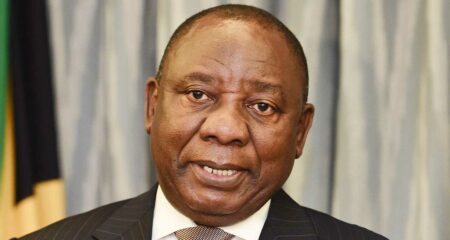
Eskom bought itself some financial breathing room after signing a R20bn short-term credit facility with a group of banks.
The power utility needed the liquidity to see it through to the financial year that starts 1 April, spokesman Khulu Phasiwe said by phone on Wednesday.
It will allow the company to continue resolving governance issues and get back to its normal funding programme required for the 2018/2019 financial year, acting chief financial officer Calib Cassim said in a statement.
Eskom is facing a financial crisis exacerbated by weak demand for electricity and allegations of graft. It’s building two large new coal-fired plants that are over budget and years behind schedule.
Cyril Ramaphosa, who took over leadership of the ANC in December and became president of the country two weeks ago, announced sweeping changes to Eskom’s board as one of his first moves this year.
S&P Global Ratings cut the utility’s rating late Tuesday to CCC+, saying Eskom was at risk of a distressed exchange situation or default in the next six months and noting “uncertainty regarding the extent and timeliness of government support for Eskom”. The company has monthly debt-service costs of as much as R6bn over the next six months, excluding refinancing of short-term bridge funding and recurring negative free cash flow, S&P said.
The new board and leadership of Eskom have been working to revive relationships with lenders who stopped working with the company because of allegations of corruption and poor decision making, acting CEO Phakamani Hadebe said last month.
Eskom on Thursday plans to pay back the R5bn bridging loan from the Public Investment Corp that it had arranged for the month of February, Phasiwe said. The PIC manages the bulk of the pension savings of South Africa’s civil servants.
The facility announced Wednesday is government guaranteed and will form part of the financing of Eskom’s current capital expenditure programme, the company said. It also signals “a renewed willingness by financial markets to engage with Eskom”, Cassim said.
However, the company needs to secure another R70bn for its 2018/2019 financial year, Phasiwe said.
“We still have an uphill battle for the next financial year.” — Reported by Paul Burkhardt, (c) 2018 Bloomberg LP




